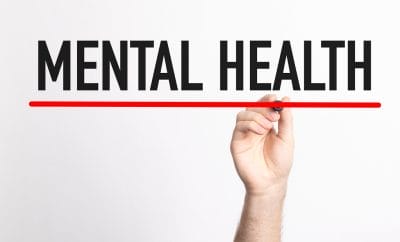Mental Health Support: Most people join the US military because they want to protect their country and the democratic ideals that it upholds. While doing so can be a very validating experience, military service comes with certain risks that not everyone understands when they enlist.
People understand that they will be risking life and limb for their beliefs and most Americans know at least one person who has been injured or killed serving their country. However, not everyone is aware of the largely hidden mental help crisis among American veterans.
Common Problems Facing US Veterans
Rates of post-traumatic stress disorder (PTSD) are much higher among veterans than they are in the general population, which can lead to secondary issues such as depression, generalized anxiety, and substance use disorders. There are some mental health services available through the VA, plus private clinics offering substance abuse rehab for veterans, but because these issues aren’t highly publicized, not all vets know how to find help. Even worse, some are still ashamed to admit that they might need it.
How to Get Immediate Help
Every person’s situation is different, so it’s appropriate that the types of mental health services available vary significantly in scope and approach. For veterans in crisis, the best approach is to call a hotline for help and advice. The Veterans Crisis Line can be reached by dialing 988, and then pressing 1. If a veteran is experiencing suicidal ideation, they should seriously consider going to a hospital. However, the National Suicide Prevention Hotline also offers help specifically for veterans and can be reached at 1-800-273-TALK.
Find Non-Urgent Mental Health Care
Hotlines aren’t just for emergencies. Veterans and their families can also use helplines to get connected to available resources. Try:
- The National Veterans Foundation at 1-888-777-4443
- It’s Up to Us at 1-888-724-7240
- The VA Homelessness Hotline at 1-877-424-3838
- The Substance Abuse and Mental Health Services Administration (SAMHSA) National Helpline at 1-800-662-HELP
There are also free clinics available specifically for veterans seeking mental health care. In addition to the official VA clinics, veterans can seek help through:
- The Soldiers Project, a program that provides free, confidential psych treatment for veterans in Chicago, Houston, NYC, Sacramento, Pennsylvania, Washington, Wyoming, and southern California.
Give an Hour, an organization that connects veterans to local mental health clinics in any location.
Homecoming for Veterans, a directory of mental health clinicians that offer 20-minute, no-cost sessions.
Peer Support
Some veterans prefer to seek help and support from others who have been in the same position. For them, online, phone-based, or in-person peer support networks offer an alternative to more formal care. Try programs like Vets 4 Warriors, Mission Reconnect, and Patients Like Me. All three of these programs are designed to connect vets with others who understand what they are going through, although it’s important to recognize that peer support programs can’t always take the place of more formal types of mental health care.
Is It Time to Reach Out?
Veterans looking for help and loved ones who are concerned about their family members or friends are not alone. There are resources available to help, but they’ll only be helpful to people who take the time and initiative to call. There’s no better time than now to start the journey toward healing, and no one deserves help along that difficult path than those who have sacrificed to serve their country.
